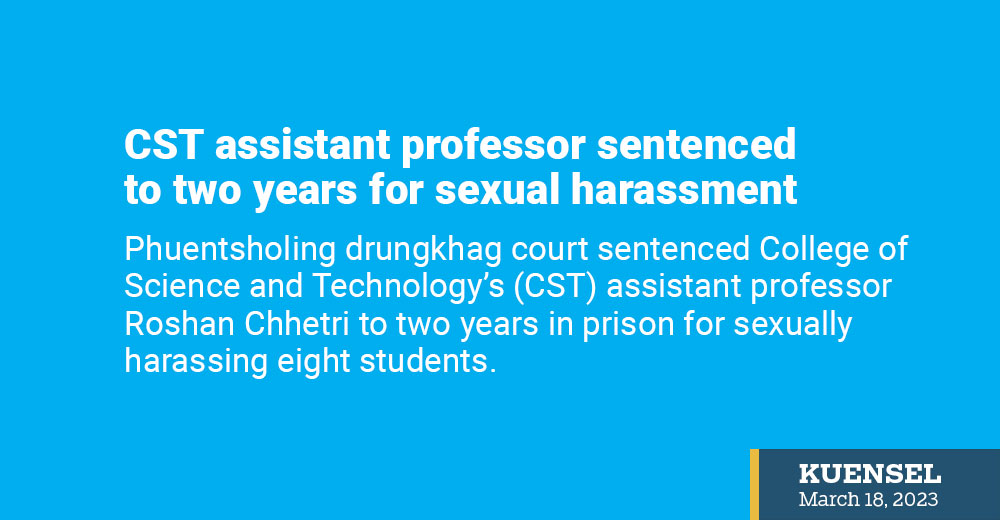… and an addition three months for harassment
Thinley Namgay
Phuentsholing drungkhag court sentenced College of Science and Technology’s (CST) assistant professor Roshan Chhetri to two years in prison for sexually harassing eight students.
The man was also sentenced to additional three months for harassment of another student.
However, the defendant can pay thrimthue of Nu 101,250 within 10 days of the judgment in lieu of the prison term.
The victims are all women and incidents happened between 2021 and 2022.
The students first complained about the molestation to the “access person” of the college’s counselling and support group. The complaint was then lodged on December 3, last year to the college disciplinary committee.
Since the case is beyond the college’s authority, the CST referred it to the RUB administration, who then forwarded it to the police.
The assistant professor was with the college for almost 30 years. He was suspended from the college since January this year.
Police prosecuted the case. The court’s judgment stated that the perpetrator inappropriately touched the body parts of eight students without their consent during regular and extra classes.
As per section 206 of the Penal Code of Bhutan 2004, the offence of sexual harassment is graded a petty misdemeanour. The defendant was sentenced to three months in prison for sexually harassing each of them.
The judgment stated that one of the girls was harassed in front of her classmates. The court mentioned that the assistant professor body-shamed her.
The court says that body-shaming is considered harassment as per the law as it involves subjecting someone to humiliation and criticism for their body features with ill intention.
The police in their submission to the court demanded compensation for the victims. However, the court denied it stating that the girls told the court that they don’t want compensation.
The legal representative of the defendant told the court that he was not guilty as per the principle of corpus delicti. The principle of corpus delicti says no one should be convicted of a crime without sufficient evidence.
The legal representative said that besides oral explanations from victims, there should be tangible evidence. “Benefit of doubt should be granted to the defendant.”
However, the court rejected his claims. Other students told police that the defendant used to sexually harass girls.


